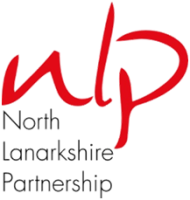North Lanarkshire children at risk are well supported, report finds

An inspection of partnership support services in North Lanarkshire has resulted in a highly encouraging report for the positive difference they make to the lives of children and young people at risk of harm.
The inspection evaluated the services as ‘very good’ following engagement with children, young people, parents, carers, elected members and staff, as well as a review of cases and a staff survey.
A key conclusion highlighted that integrated, collaborative support from a range of dedicated agencies was a clear strength in early intervention for children and young people at risk of harm.
As part of the inspection, successful projects were highlighted including the virtual school which delivers bespoke services for care-experienced children and young people and has achieved vastly improved attainment and a marked reduction in school exclusions, and the Today Not Tomorrow group which has significantly influenced positive change in North Lanarkshire’s care system.
Des Murray, chief executive of North Lanarkshire Council and chair of the Public Protection Chief Officers Group, welcomed the news in a statement on behalf of the partnership: “This report highlights the skills, hard work and professionalism of everyone including colleagues from the council, NHS Lanarkshire, Police Scotland and those in the voluntary sector who work together to keep children and young people safe from harm.
“It also highlights the positive steps we’re taking towards our goal of improving outcomes for all children and young people in our area. The report is highly positive and reflects our clear commitment to providing the best support we can to children and young people in North Lanarkshire.
“We would like to thank everyone who took the time to take part in the inspection and to all the staff who day-in-day-out work with children, young people and their families to keep them safe from harm and improve outcomes.
“Clearly there is no room for complacency and the partnership will now work to further strengthen the services we provide in order to build on the report’s findings.”
The partnership ensured that children and young people were safer because of effective identification and response to risk and the support they received.
Judith Tait, independent chair of North Lanarkshire Child Protection Committee, added: “This is a strong report which clearly confirms the commitment at all levels in services working across North Lanarkshire to children and young people at risk of harm.
“We welcomed the external scrutiny and the rigour of the inspection. We are pleased the inspectors recognised the partnership knows itself well, having identified our areas of improvement with actions already being taken forward to address these areas.
“The report also recognises the impact on the wellbeing of children and young people at risk of harm by the provision across the partnership of quality services.
“On behalf of the child protection committee, I would like to thank all staff for their engagement with the inspection process and for their ongoing hard work in helping to safeguard children and young people at risk of harm.”
The report also found:
- Children and young people were listened to, understood and respected. They were offered a variety of ways to share their views, which took account of their communication and individual needs. They contributed to decisions about their lives and how services were shaped around them.
- Children and young people experienced supportive and trusting relationships with staff, who had taken time to know them and understand their needs, strengths and the impact of their previous experiences.
- An overarching, cultural change in how children’s rights were promoted, trauma was understood, and how relationships were approached was having a positive impact on how children and young people experienced services.
- Young people over the age of 12 benefited from the broad-reaching contextual safeguarding approach. Young people received the help and support they needed to be safe. While aspects of the contextual safeguarding approach were well advanced, more data on outcomes for young people will help the partnership to fully determine its impact.
- Children and young people who required additional help with their education, health and wellbeing were identified early. Multi-agency approaches were taken to support them, including accessible mental health and emotional wellbeing supports at an early stage.








